7 ways we can form good habits and make them stick.
215 Views
7 ways we can form good habits and make them stick.
According to researchers at Duke University, habits account for about 40% of our daily behaviours. From getting up in the morning to going to bed at night we perform daily tasks (habits) without giving them a second thought.
“We are what we repeatedly do. Excellence then, is not an act, but a habit”. Aristotle.
Then why is it when we deliberately try to introduce a new habit we run into problems just getting started? The clue is willpower, when we rely on willpower alone we are doomed to failure. What then can science show us to help
1/ The new habit also has to be achievable.
Grandiose plans can become intimidating by our own lofty expectations. How “long” it takes to form a habit entirely depends on the individual, the new habit being formed, environmental factors, your motivation and stick-ability.
Interwoven with the new habits you make, new tasks are required in order to achieve them.
Find a way to balance this need to dream big with your day to day activities.
Being motivated to do things internally, not through punishments or rewards is an essential process of creating new habits that stick.
2/ Setting small quotas can make each new habit become achievable
You might be surprised to find that setting extremely low quotas is actually a great way to begin.
Consider this excerpt from Stanford psychologist B.J. Fogg on how he started his flossing habit:
“For me, cracking the code on flossing was to put the floss right by the toothbrush, and to commit to myself that I would floss one tooth — only one tooth — every time after I brushed.
I could floss them all if i wanted to, but the commitment was just one tooth.
[This works] because I was training the behavior. Maybe once every few weeks, I’d only actually floss one tooth, but a majority of the time I’d end up flossing them all”.
Professor Fogg’s entire system on Tiny Habits is built around this principle that it’s better to set micro quotas to get out of the analysis phase and right into the action phase.
3/ Planning new habits is the secret to success.
"Plans are worthless, but planning is everything" — President Dwight D. Eisenhower
What does planning have to do with habits? Planning is everything. It helps you focus your attention on every step required to reach your goal. As well as prepares you for when you start your new habit. Visualizing your goal also helps, actually seeing the end result and all the obstacles along the way tends to reduce any anxiety you may be feeling.
Don’t try to do too much at one time, trying to ‘reinvent’ yourself all at once can be the source of failure, and it’s probably why New Year’s Resolutions hardly ever stick.
It’s better instead to visualize the process of you gradually heading towards a very achievable goal.
And the easiest way to start is to create a link with something you already do daily, overtime with practice, when you do your normal daily task you will remember “and now I also do this”, which is great for building habits.
4/ Adding a new ‘link in the chain’ is a great way to get a habit started.
For instance, instead of “I will keep a cleaner house,” you could say, “When I come home, I’ll clean the kitchen.” Or If its lunch time, then "it’s time to eat a fresh vegetable salad and salmon "rather than “ I will eat healthy!” Willpower increases when you eat something good for you.
5/ Sometimes it’s hard to get started.
A good idea is to identify where exactly ‘getting started’ falls apart for you and try to create shortcuts so that the uncomfortable moment is reduced.
For example I love going to the gym but getting out of bed and organizing all my gear can be such a chore that is enough of an excuse not to go. However if all I have to do is get up in the morning and grab my gear in my bag that I got ready the night before is much less of a chore and I’m more likely to do it.
Forgive yourself, for those “what the hell moments,” when you just can’t be bothered. Instead focus on the total days you’ve done your habit, rather than the fact that you broke the chain.
Don’t let the fact that you slipped up, or that you don’t want to do something make you feel bad.
When it comes to habit formation, the greatest gains are made with early repetitions.
Planning also allows you to free up your mental energy for other important daily decisions.
Compliance is that much easier when it is planned into your daily routine.
6/ Willpower increases when you’re not too strict.
Willpower is like a muscle in that it can be worn out and making too many decisions wastes your mental energy.
Making too many decisions is a part of this problem:
“If you want to be able to have more mental resources throughout the day (to form habits!), you should identify the aspects of your life that you consider mundane — and then “routinize” those aspects as much as possible. In short, make fewer decisions”.
7/ And remember willpower increases when you feel good about yourself.
Feeling good about yourself is helped with a good attitude. Gratefullness. Low stress. Eating fresh foods and avoiding processed foods that deplete your energy.
I hope you enjoyed this article. If you did we would love you to share it with a friend.
Live long and prosper.

